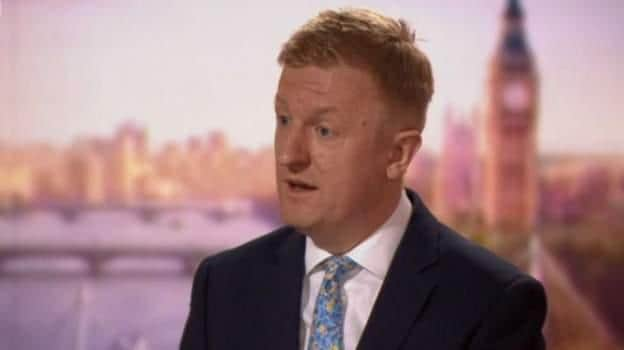Culture Secretary: ‘Restrictions could remain in place beyond June’, as government advisors ‘nervous’ about full relaxation
and live on Freeview channel 276
The UK Culture Secretary, Oliver Dowden has told how there is no guarantee that legal restrictions will end in June, despite nearly 30 million people in the UK having received the first dose of their vaccine.
Appearing on BBC’s Andrew Marr show on 28 March, he said the government was “on track” with the vaccine roll out and declining hospital admissions, but if the situation deteriorated then delays to alleviating social distancing restrictions would be considered.
Advertisement
Hide AdAdvertisement
Hide AdWhen Marr pressed him on whether another lockdown could be imposed in England, he replied: "My whole experience of the past year, and I think everyone that's watching's experience of the past year, is you can't rule things out.


"But we have every confidence we won't have to have another lockdown because we've done this and it's the last thing in the world we would want to do."
Also appearing on The Andrew Marr show, epidemiologist and government advisor Professor Mark Woolhouse said it is imperative that the government is guided by data as it lifts restrictions, adding he is "nervous" about the prospect of full relaxation of coronavirus restrictions in June.
He told Marr: "It will be important that the government continues to be guided by the data,"
Advertisement
Hide AdAdvertisement
Hide Ad"If they go on at this rate, I think we can get quite close to a full release, but the idea that we can suddenly emerge from this in one great bound, I think is a little over-optimistic."
Asked about the current vaccine rollout, he said he is confident that it will allow for restrictions to be alleviated in a similar schedule to that which the UK government has outlined.
But, he added any delays to vaccine supply chains "will slow down the rate at which we can unlock".
"It's not just about the actual number of vaccines being given out, but the coverage of those most vulnerable groups".
Advertisement
Hide AdAdvertisement
Hide AdHe stressed coverage had been "excellent" for the first dose - which affords 80-90% protection - but said we have to bear in mind that only we were only about one fifth of the way to completely vaccinating our entire adult population with both doses.
The ability for the government to legally impose emergency restrictions has been extended for another six months, as MPs have voted to extend the emergency provisions in the Coronavirus Act on Thursday.
Despite opposition from several Tory backbenchers and the Liberal Democrats, MPs voted 484 to 76 in favour of the extension.
The vote means that emergency powers, like the ability of police to force people to receive coronavirus tests, will remain in law.
Advertisement
Hide AdAdvertisement
Hide AdHancock said the powers must be retired "within one year and preferably within six months,” but added "I cannot answer whether we will be retiring it in six months. My preference would be yes, but given the last year, I think a prediction would be hasty."